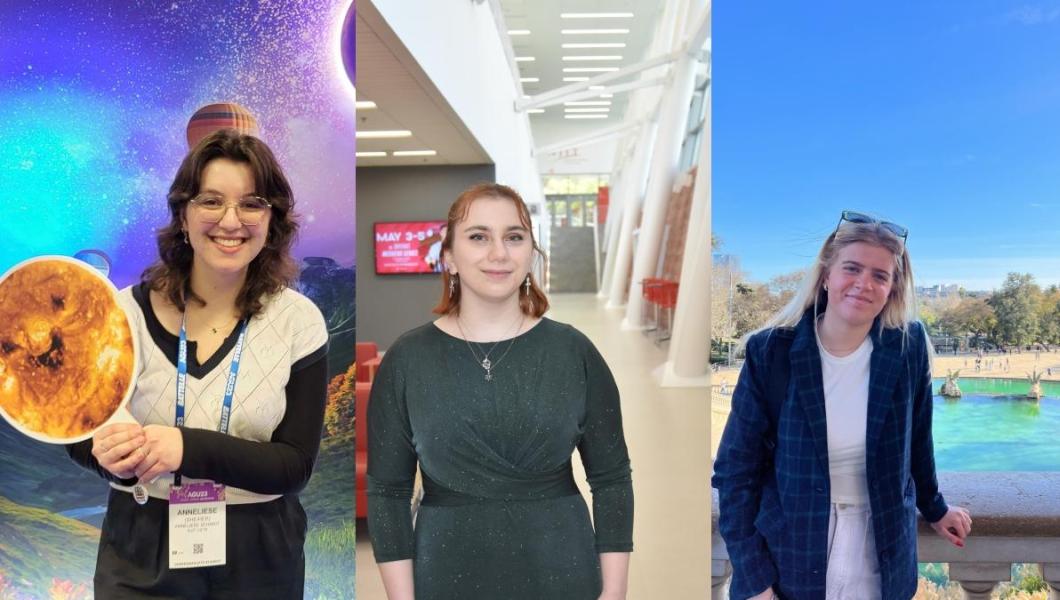NJIT's Dean Kevin Belfield Named Fellow of the American Chemical Society

Kevin Belfield, dean of NJIT’s College of Science and Liberal Arts, has earned the exclusive honor of being elected fellow of the American Chemical Society (ACS), the world's largest scientific society.
With the ACS’s announcement, published in the July 15 issue of Chemical & Engineering News, Belfield becomes among the first NJIT faculty members to be named ACS Fellow, a distinction the society established through its fellows program in 2008 to award its members for “outstanding achievements in and contributions to science, the profession and the society.” Currently, just over 1,100 of the society’s more than 157,000 members have earned the distinction.
Belfield joins 70 other newly named fellows this year, who will be formally recognized for diverse accomplishments in education and research across the chemical sciences at the ACS National Meeting and Expo in San Diego, Calif. Aug. 26.
“I am thrilled and humbled, as it represents recognition from the major professional society in my field of which I’ve been a member and participated in, in a variety of capacities, continually throughout my career,” said Belfield. “It really is a true honor to be among the fellows.”
In the announcement, the society recognized Belfield for standout achievements that span his 30-year career as a researcher, educator and professional mentor, citing his “contributions to organic photonic materials, especially two-photon absorbing materials in 3D optical data storage and bioimaging, and continuous leadership in developing academic programs, departments and student mentorship.” The organization also cited his “sustained service to local sections, student affiliates chapters, public outreach, service in a number of roles and offices, and [efforts] as organizer for professional symposia and workshops.”
An engaged ACS member since 1982, Belfield is widely acknowledged as a pioneer in the field of two-photon-based nondestructive imaging technology, capable of creating optical changes in three dimensions deep within materials, which has since paved the way for innovations in everything from erasable and rewritable 3D storage material, to cancer therapy and wound healing applications, to materials used to initiate microfabrication and 3D printing.
Holder of more than 15 U.S. patents with research published in more than 250 peer-reviewed journal articles and book chapters and conference proceedings that have been cited over 6,000 times, Belfield’s previous honors include being named fellow of the American Association for the Advancement of Science in 2013, and Pegasus Professor at the University of Central Florida in 2011 for his research accomplishments.
“I’ve been very fortunate to have been in the right place at the right time, and work with some outstanding research collaborators,” said Belfield. “Just as rewarding, has been the opportunity to contribute to the professional development of the next generation of chemical scientists, helping them realize new opportunities in the profession.”
Belfield has maintained a leading role in education and research at NJIT since his arrival to the university as CSLA dean and professor within the Department of Chemistry and Environmental Science in 2014. He is also principal investigator of the Belfield Research Group, which is now applying two-photon-based imaging technology to improve early cancer detection and study processes that may be associated with the development of early-stage Alzheimer’s disease. His research is currently funded by the National Science Foundation and the Army Educational Opportunity Program, with past support from the National Institutes of Health, the National Academy of Sciences, the Arnold and Mabel Beckman Foundation, the U.S. Army, the Air Force Office of Scientific Research and the James and Ester King Foundation for Biomedical Research.
…
Founded in 1876 and chartered by Congress, ACS identifies itself as the world’s largest scientific society with more than 150,000 members. Its vision is to improve people’s lives through the transforming power of chemistry. To learn more about the ACS and its fellows program, visit: https://www.acs.org/content/acs/en/funding-and-awards/fellows.html

